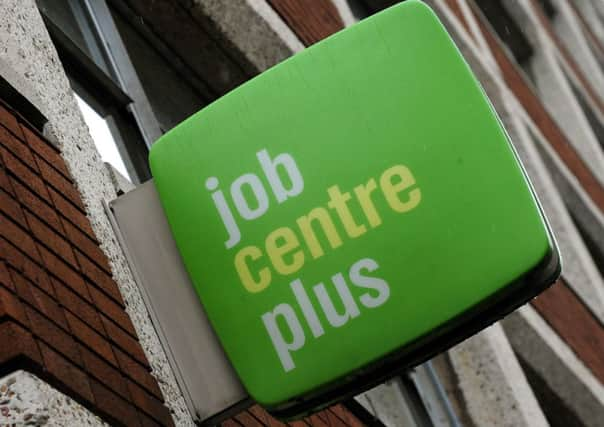A nation of part-timers, as number in work hits all-time high


The employment total is the highest since records began in 1971 after a huge increase of 177,000 between the three months to June and the quarter to September.
But Yorkshire is one of only three regions to have seen a rise in unemployment, with the rate standing at 248,000 or 8.9% - up 4,000 on the previous quarter.
Advertisement
Hide AdAdvertisement
Hide AdNationally, unemployment fell by 48,000 to 2.47 million, the lowest since the spring of 2011, while the number of people claiming jobseeker’s allowance was cut for the 12th month in a row in October, down by 41,700 to 1.31 million, the lowest for almost five years.
The number of people classed as economically inactive, including those looking after a sick relative, or people who have given up looking for work, also fell - down by 69,000 to 8.92 million.
But other data from the 0ffice for National Statistics showed that 1.46 million people were working part-time because they could not find a full-time job, an increase of 24,000 over the quarter, and the highest figure since records began in 1992.
Almost a third of working men are in part-time employment because they cannot find a full-time job, compared to 13% of women.
Advertisement
Hide AdAdvertisement
Hide AdThe number of men and women working full-time increased, but there was a 22,000 fall in women in part-time jobs.
Around 890,000 people have been out of work for over a year, down by 19,000, with just under half of those unemployed for more than two years, a fall of 15,000.
There were 950,000 unemployed 16 to 24-year-olds in the latest period, around a third of whom were in full-time education, a fall of 9,000, giving a youth jobless rate of 21%.
Average earnings increased by 0.7% in the year to September, down by 0.1% from the previous month.
Advertisement
Hide AdAdvertisement
Hide AdExcluding bonuses, pay rose by 0.8%, the joint lowest since records began in 2001.
The UK’s unemployment rate of 7.6% is lower than the European Union’s average of 11%, with the highest rates in Greece (27.6%) and Spain (26.6%).
The lowest rates are in Austria (4.9%) and Germany (5.2%).
Minister for Employment Esther McVey said: “This Government is delivering on its promise to rebalance the economy, promote job creation, and support people to get off benefits and into work.
“Today’s figures show that the number of people in work has risen by more than a million under this Government, with the growth driven by full-time private sector jobs.
Advertisement
Hide AdAdvertisement
Hide Ad“At the same time, the number of people claiming the main out-of-work benefits has fallen by almost half a million. There’s more work to do, and we are not complacent, but these are all very positive signs.”
In a message on Twitter, Prime Minister David Cameron said: “There are now 1.1m more people in work since the election - more proof our long-term plan for Britain is working.”
TUC general secretary Frances O’Grady said: “Britain’s workforce is getting larger but poorer.
“It is encouraging that more jobs are being created but job quality is falling and close to a 20-year low. A record number of people are stuck in part-time jobs because they can’t find full-time work, while real wages continue to shrink fast despite falling inflation.
Advertisement
Hide AdAdvertisement
Hide Ad“We need better jobs and healthier pay rises to tackle the living standards crisis and ensure that the full benefits of recovery reach working people.”
Shadow work and pensions secretary Rachel Reeves said: “Today’s fall in unemployment is welcome, but families facing a cost-of-living crisis need a recovery that benefits them, and these figures show we are still far from achieving that.
“Prices have now risen much faster than wages for 40 of the 41 months since David Cameron became Prime Minister. On average, working people are now over £1,600 a year worse off under this out-of-touch Government.
“The employment figures give no cause for complacency. The number of people who want to work full-time but are stuck on part-time hours is at a record high. And youth unemployment is still at unacceptable and unaffordable levels.”